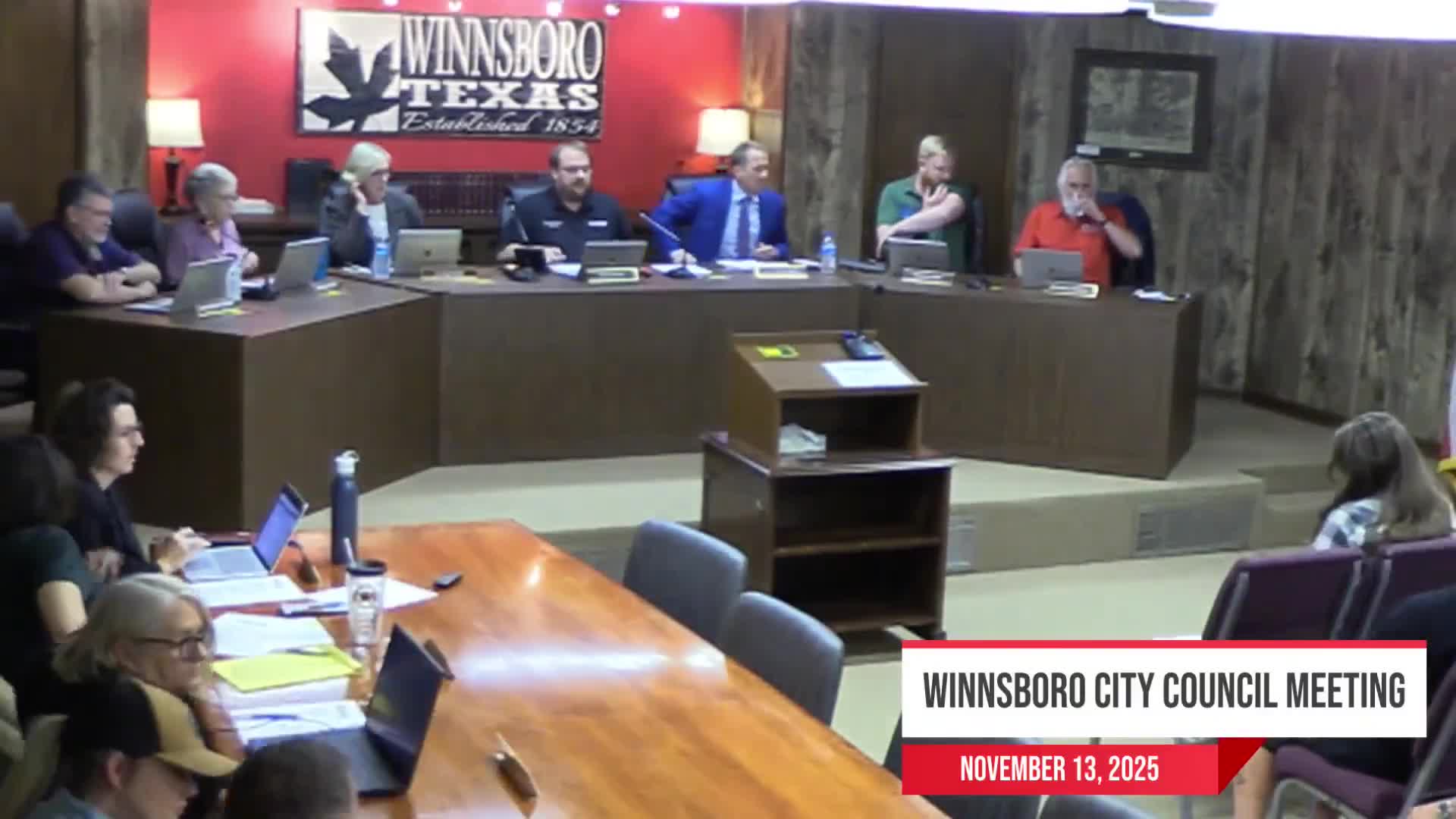Harmony FFA students debate tariffs’ costs and benefits at Winnsboro City Council meeting
Get AI-powered insights, summaries, and transcripts
Subscribe
Summary
Students from Harmony High School’s FFA presented competing arguments on tariffs’ effects on U.S. agriculture, citing data on export losses, input-cost increases and consumer prices while urging local engagement in trade policy discussions.
Madison Nicks, moderator of the Harmony FFA Ag Issues Team, told the Winnsboro City Council on Nov. 13 that tariffs are more than “numbers in an economic report,” and said they affect what farmers pay for fertilizer, what ranchers get for beef and what families spend at the grocery store. "Tariffs are more than numbers in an economic report," Nicks said during the student forum.
The student panel presented two sides of the tariff debate. Evelyn Rose argued that tariffs have “disrupted America’s global trade relationship” and cited figures students said show the U.S. lost roughly $27,000,000,000 in farm exports since tariff-driven trade disruptions. "Tariffs are disrupting America’s global trade relationship," Rose said. On the other side, Justice Barton said new tariffs “are a benefit to American agriculture,” arguing they protect farmers from unfair foreign subsidies.
The students highlighted a mix of economic impacts and policy trade-offs. Presenters said tariffs have raised input costs — pointing to an increase in potash prices of about 50% — and contributed to higher retail prices for some produce (a claim used in the presentation said tomatoes had risen nearly 40%). They also cited a decline in small farms between 2017 and 2022 and warned that emergency federal aid has tended to benefit larger producers more than smaller family farms.
Panelists emphasized different remedies: opponents urged a focus on lowering input costs and restoring export markets, while proponents recommended using tariffs as leverage in trade negotiations and pairing tariffs with investment in local production technologies such as greenhouses and hydroponics.
Mayor and council members thanked the students and asked brief follow-up questions about their backgrounds and the team’s preparation. The presentation was introduced by Councilman King and took place before the council’s consent and action items.
The forum provided a local forum for national trade questions; students said their team hopes to advance in leadership-development contests at the district level. The council did not take any formal action on the policy issues raised by the presentation.
The council’s next regular meeting is scheduled for Dec. 8, 2025, at 5:30 p.m.
